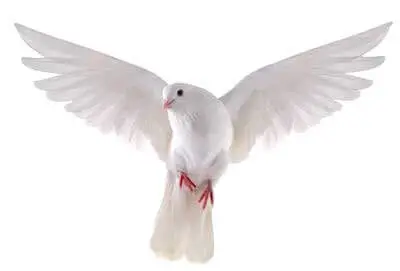‘Lovey-dovey’ is an affectionate, somewhat childish, name for a sweetheart. More widely, the term is used to describe sentimentally loving behaviour.
Lovey-dovey
What's the meaning of the phrase 'Lovey-dovey'?
What's the origin of the phrase 'Lovey-dovey'?
‘Lovey-dovey’ is one of those reduplicated phrases where both words contribute to the meaning – like happy-clappy or topsy-turvy. That is to say, both lovey and dovey mean something outside of this expression.
Lovey is self-explanatory. Dovey is a reference to a dove. This accords with other pet names commonly used in English which refer to birds – duck, duckie, chicken, chuckie, chickadee.
The expression ‘lovey-dovey’ was in general use by the 1880s but isn’t the easiest of phrases to research in the usual language databases – lovey is a common word and dovey is a surname and the name of a town and a river in the UK.
Lovey began being used as a pet name in the 17th century, as in this example from The Second Book of Rabelais, 1653:
My tender peggie, my Codpiece darling, my bob and hit, my slipshoe-lovie.
‘Lovey-dovey’ originated in Britain in the 18th century. The earliest reference to lovey and dovey together that I’ve found is in a collection of stories entitled Wooden Bowl, 1767:
Pronounce they never will their [real] names, But Toll for Polly, Zimm for James; Chuck, Lovey, Dovey…
The above might be said to be a coincidence of the two words but the phrase itself is found a few years later, in Thomas Holcroft’s comedy Duplicity, 1781:
Nay, but don’t cry in earnest, lovidovey.
For the next hundred years or so ‘lovey-dovey’ was only used as a pet name. By the late 19th century it was well enough established in the language to become and adjective. Things began to be dome in a lovey-dovey way, as in this from the Alabama newspaper The Eufaula Daily Times, 1872:
The “hunkidori,” “cream and sugar,” “lovey dovey,” “hootchy coochy” attitude towards each other…
For the most part of its existence in the language ‘lovey-dovey’ was just a name. It is now used rather disparagingly, to refer to behaviour that is overly sentimental.
The history of “Lovey – dovey” in printed materials
Trend of lovey – dovey in printed material over time
Related phrases and meanings
Browse more Phrases
About the Author

Phrases & Meanings
A-Z
A B C D E F G H I J K L M N O P Q R S T UV W XYZ
Categories
American Animals Australian Bible Body Colour Conflict Death Devil Dogs Emotions Euphemism Family Fashion Food French Horses ‘Jack’ Luck Money Military Music Names Nature Nautical Numbers Politics Religion Shakespeare Stupidity Entertainment Weather Women Work
How did we do?
Have you spotted something that needs updated on this page? We review all feedback we receive to ensure that we provide the most accurate and up to date information on phrases.
